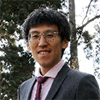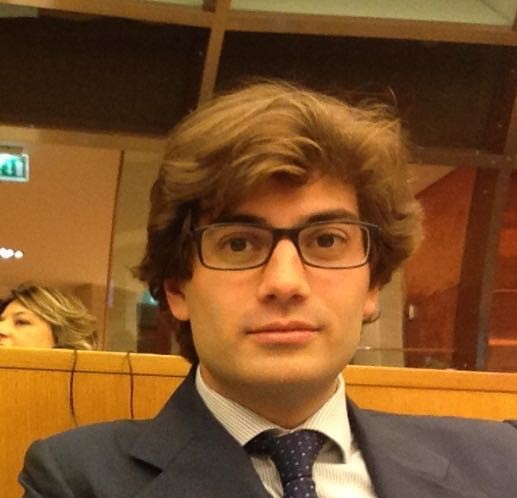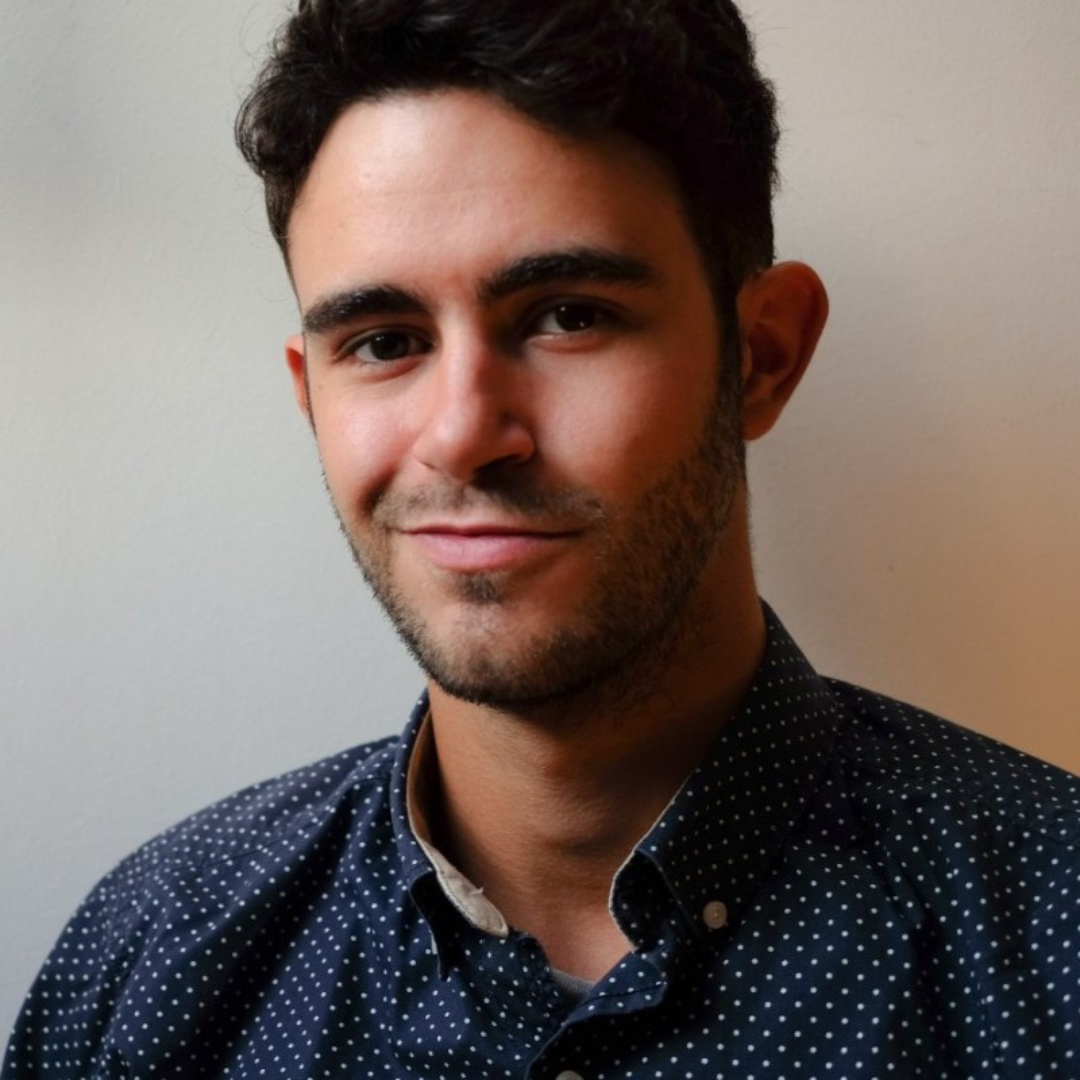VISITING FELLOWS & AFFILIATED RESEARCHERS
The Hoffmann Centre for Global Sustainability regularly welcomes visiting fellows and has several external affiliated researchers.
The Hoffmann Centre for Global Sustainability regularly welcomes visiting fellows and has several external affiliated researchers.
Visiting Fellow & Lecturer

Katja Doose is an environmental historian and currently a post-doctoral researcher at the University of Fribourg, where she works on an SNF funded project on the history of Soviet glaciology. Prior to that she has held positions at the École des hautes études en sciences sociales (EHESS) and at the University of Birmingham. She holds a PhD in Eastern European History from the University of Tübingen.
Her research focuses on the history of climate science in the late 19th and 20th century as well as related Russian debates on the Anthropocene. Her recent publications include ‘Natural and anthropogenic climate change understanding in the Soviet Union, 1960s-1980s‘ (with Jonathan Oldfield, 2018)); `The Armenian Earthquake of 1988: A perfect Stage for the Nagorno-Karabakh Conflict`(Europe-Asia Studies, 2018); ‘Spitak: the last petrified Soviet Utopia’, in: Tigran Harutyunyan, Architectural Guide Yerevan (2017). And she is the author of the book "Tectonics of the Perestroika. The 1988 earthquake and the political re-ordering processes" (2019).
Since 2018, Katja has been an affiliated researcher at the Graduate Institute's Centre for International Environmental Studies (CIES) and has been a lecturer in the MINT programme in the academic year 2019-2020.
Visiting Professor

Tim Flannery is the Graduate Institute’s Fondation Segré Distinguished Visiting Professor.
He is one of the world’s most prominent environmentalists. Currently professor at Melbourne University Sustainability Institute, Professor Flannery has taught at Harvard University and has advised governments both in Australia and Canada. In 2007 he established and co-chaired the Copenhagen Climate Council, and in 2011 was appointed Australia’s first Climate Commissioner.
Tim Flannery has published over 140 peer-reviewed scientific papers and has named 25 living and 50 fossil mammal species. His 32 books include the award winning The Future Eaters and The Weather Makers, which has been translated into over 20 languages. He has made numerous documentaries and regularly writes for the New York Review of Books. He speaks Bahasa Indonesia and Melanesian Pigeon, and has over 20 years of experience as an explorer and biologist in New Guinea and surrounding countries, and has extensive knowledge of the region. His most recent book, which deals with carbon negative technologies, is Atmosphere of Hope: Searching for solutions to the climate crisis.
Professor Flannery has served on the board of WWF International, as an advisor to the National Geographic Society, and the Prince of Monaco Foundation. He has also been on Siemens’ International Sustainability Advisory Board and The Climate Group (Australia). He currently serves on the Sustainability Advisory Board of Tata Power (India’s largest privately owned energy company), as scientific advisor to Magaldi Solar (Italy) and the Fondation Segre (Switzerland).
In 2007 he was named ‘Australian of the Year’, arguably Australia’s highest honour. He delivered the 2002 Australia Day Address to the nation. In 2011 he was made a Chevalier of the Order of St Charles, and in 2015 received the Jack Blayney Award for Dialog from Simon Fraser University, Canada. In 2013 he founded, and is now chief councilor, of the Australian Climate Council, Australia’s largest and most successful crowdfunded organisation.
Affiliated Researcher

Yixian Sun is a Postdoctoral Fellow at the Yale School of Forestry & Environmental Studies, Yale University, and an affiliate of the Yale MacMillan Center Council on East Asian Studies. He holds a Ph.D. and Master's degree in International Relations / Political Science, from the Graduate Institute of International and Development Studies (IHEID) in Geneva, and he is also affiliated with its Centre for International Environmental Studies (CIES). His research has been funded by the Swiss National Science Foundation.
His research interests include transnational governance, environmental politics, and sustainable consumption and production. He seeks to explain whether and how private governance initiatives can help large emerging economies, China in particular, achieve sustainability transitions. His work has been published in the Review of International Political Economy, Global Environmental Politics, and VOLUNTAS: International Journal of Voluntary and Nonprofit Organizations. Besides his research, he is also a writer for the Earth Negotiations Bulletin, having attended various meetings of multilateral environmental treaties.
Affiliated Researcher

Dario is an Expert in Environment, Health, and Well-Being at the European Environment Agency (EEA) in Copenhagen, Denmark. At the Graduate Institute of Geneva, he has previously held research positions at the Centre for International Environmental Studies (2018-2020) and the Global Health Centre (2016-2018), becoming an affiliated researcher at the CIES in September 2020. Before joining the EEA, Dario also worked as an independent consultant on projects including the Lancet & Financial Times Commission on Governing Health Futures 2030, the UN75 Initiative, and the Governing Pandemics Initiative.
From 2012 to 2019, he collaborated with the UN Sustainable Development Solutions Network in a variety of roles, and since 2017 he has twice been a co-recipient of Erasmus+ grants for Jean Monnet modules relating to international and European environmental law issues. He is presently a member of the IUCN World Commission on Environmental Law and the IUCN Commission on Ecosystem Management.
Dario holds a PhD in International Law from the Graduate Institute of Geneva and is also a graduate of the University of Siena (JD, cum laude) and the London School of Economics (MSc in Environment and Development). His main areas of expertise include international and European biodiversity law, global health governance, and science and technology-policy interfaces in health and environment.
Affiliated Researcher

Having received his PhD in Development Studies from the Graduate Institute, Geneva in 2015, Morgan is now a postdoc affiliated researcher at CIES and at the Department of Global Development and Planning, University of Agder, Norway. Morgan conducts research on the social and political dimensions of global environmental change, particularly in developing countries. Morgan has conducted fieldwork with rural communities in the Andes and piedmont forests of Peru. He has also lectured on topics related to Political Ecology, global environmental change, climate change adaptation, qualitative methods, and fieldwork approaches.
Affiliated Researcher

Stefano Porfido is a PhD candidate at Sant’Anna School of Advanced Studies in Pisa, and he is currently fellow at the Centre for International Environmental Studies (CIES) of the Graduate Institute of International and Development Studies in Geneva. He holds a LLM degree with distinction in “International Human Rights Law” from the University of Essex in the United Kingdom.
Prior to that, he graduated cum laude at “Sapienza” University of Rome, discussing a thesis on the criminal law of economy. After having passed in 2016 the bar exam before the Court of Appeal in Rome, he collaborated as teaching assistant with the chair of the “European criminal law” course at “Sapienza” University. He has also worked for the “Unione forense per la tutela dei diriti umani” in the human rights advocacy field. His main research interests include the relation between criminal law and restorative justice, human rights, environmental victims, and regulation.
Junior Visiting Fellow

Antonio Barchi is a second-year Ph.D. candidate at Politecnico di Torino and Università di Padova, focusing on Environmental and Industrial Economics. He holds a joint master degree in Economics from Università “La Statale” di Milano and Université Catholique de Louvain.
His research interests are centered on green innovation and the role of industrial policy in fostering sustainable economic growth. His doctoral research predominantly explores environmental microeconomics, with a keen focus on eco-innovation and the influence of new technologies in promoting sustainable practices. A key aspect of his research involves analyzing the integration of sustainable fuels to reduce emissions in the aviation sector. Additionally, in the frame of the EU funded project “NODES”, he is investigating carbon capture & storage (CCS) technologies and their impacts on the oil and energy sectors. He also dedicates part of his research to understanding the economic implications of environmental policies, particularly in relation to inequalities and social issues that may arise from green economic strategies.